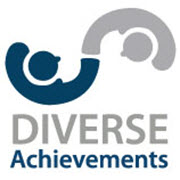Should you have Goals or Systems?

In December, James Clear wrote a post for Entrepreneur magazine entitled “Forget Setting Goals, Focus on This Instead“. The “this” of the piece was creating systems. It was a thought provoking piece, especially given the number of posts exuding the benefits of goals setting and planning for the year to come. A lot of the post made great sense, but lead me to ask should you have goals or systems, and are they mutually exclusive.
I enjoyed a lot of the piece and fully believe in building effective systems to get work done, but it appeared that Clear was purporting that you should have one without the other. That you only needed to have systems and all else would fall nicely into place. To illustrate his point, he noted that he had written 115,000 words in the 11 months prior to posting this piece, enough for two books, though he had not set out to write a book. Clear, to distinguish between goals and systems, used the book instance a little further:
“If you’re a writer, your goal is to write a book. Your system is your writing schedule that you follow each week”.
And it’s true that you need good habits (or systems) to help you stay focused on task. In his post he asked that if you focused on the habit, would you achieve your ultimate goal. It of course presumes that you have an end or a sign post in mind at the outset.
The only area that didn’t sit quite as well with me was the assertion, that having a goal inhibited your ability to enjoy the process; or as Clear notes “goals reduce your current happiness”. Now it’s true that too many people penalize themselves by believing that they have to achieve a goal before they can be happy, or as Clear rightly echos “Once I reach my goal, then I’ll be happy. Once I achieve my goal, then I’ll be successful.” Fortunately, we are learning so much more from the social sciences on being mindful that we can lay that “puritan work ethic” to rest and allow ourselves to enjoy the journey. After all, we’re all likely familiar with quotes like Greg Anderson’s ” Focus on the journey, not the destination. Joy is found not in finishing an activity but in doing it”; or Jim Rohn’s “You can not change your destination overnight, but you can change your direction”.
It’s been my experience that building systems (habits) to help you reach a destination is a sure way to experience happiness and success. We all get great enjoyment from the hit of dopamine we receive for checking off a task from our to-do lists. Those destinations can be our ultimate task or the benchmarks along the way. For me our goals are not commandments, set in stone without the ability to rewrite them as situations or opportunities arise, but are merely signposts to help us know if we are on the right track to the destination we initially envisioned. When we do stray off track, it also provides us with the opportunity to know if the original destination was the right one in the first place, if not, then we can start to alter that destination. Without a destination in mind, how will we ever know if we’re heading in the right direction. Clear notes that having that big goal can add so much stress, but it’s been my experience that if you break the big goal into it’s component parts, you reduce the stress and get to enjoy the process more by setting up mini-wins along the way. My concern with the tenor of his piece goes to the fact that Stephen Covey so elegantly noted (paraphrased) “We can build a ladder, and climb the rungs, only to find that we’ve got it balanced against the wrong wall”. It’s so important to know where you are going.
We both agree that goal setting is an important element of success. Clear notes at the end of the piece “that goals are good for planning your progress, and systems are good for making progress”, and without a doubt a goal that doesn’t have a plan (process) attached to it is just a dream.
I see this so often with clients, the one or another dilemma, do you focus on goals or systems. All to frequently, they have an end goal in mind, but haven’t built effective processes or habits to implement the plan, or they focus to much on the “How” and don’t have any idea of “Why” they are doing what they are doing, thus missing out on the passion and ultimate destination. A great work to refer to from a social media plan and execution regard is Neal Schaffer’s “Maximize Your Social” [review coming] and “The 4 Disciplines of Execution” by Chris McChesney, Sean Covey and Jim Huling.
I’d encourage you to read the initial post and share your best practices to execute, monitor and reach your goals.
Gordon Diver
Gordon Diver is father to Spence, partner to Joan, engaged in community and a marketer interested in social business and in delivering exceptional service.


Comments
Interesting post. I think about my work in terms of major goals, daily goals, weekly goals, and project oriented processes.
My system is very much the same. I’m looking to incorporate more of the 4DX strategies.